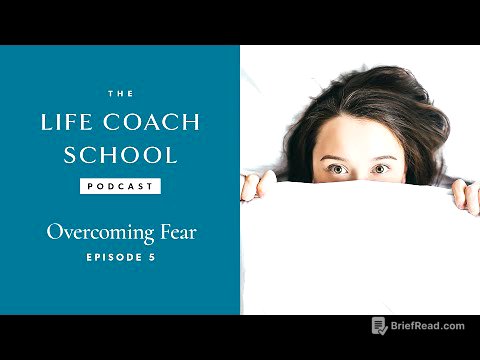TLDR;
This video provides a comprehensive four-step strategy to tackle chemistry for 11th and 12th-grade students. It addresses common problems like difficulty with numericals, fast-paced coaching, memorization challenges, and effective revision techniques. The strategy focuses on strengthening basics, effective NCERT reading, smart revision, and tailored approaches for physical, organic, and inorganic chemistry.
- Strengthen basic concepts in physical, inorganic, and organic chemistry to build a solid foundation.
- Read NCERT effectively by integrating question-solving with reading.
- Create formula sheets for physical chemistry and short notes for organic chemistry.
- Implement a smart revision strategy that focuses on practice questions and targeted revision of weak topics.
Introduction [0:00]
The video addresses the challenges students face in chemistry, particularly in 11th and 12th grade, such as numerical problems in physical chemistry, memorizing vast amounts of information in organic chemistry, and dealing with numerous exceptions. It acknowledges the difficulties students face with fast-paced coaching, backlog accumulation, and the overwhelming task of memorization. The video introduces a four-step solution to help students remember, understand, and excel in chemistry.
Step 1: Strengthening Basic Concepts [2:00]
The first step emphasizes the importance of building a strong foundation in chemistry. It advises against rushing to catch up with coaching classes and instead focusing on understanding fundamental concepts. Key topics include mole concept, redox reactions in physical chemistry, and inorganic chemistry topics like periodic table and chemical bonding. For organic chemistry, IUPAC nomenclature and General Organic Chemistry (GOC) are highlighted as essential basics. Mastering these basics is crucial for understanding advanced topics in 12th grade.
Step 2: Effective NCERT Reading [4:17]
This step focuses on how to effectively read and utilize the NCERT textbook. It suggests that while physical chemistry can be managed by solving exercise questions, inorganic and organic chemistry require in-depth, line-by-line reading of NCERT. The video advises students to first attend lectures to understand the concepts and then approach NCERT. A practical tip is to read a small portion of NCERT (e.g., one topic or two pages) and immediately solve related questions to reinforce understanding and maintain interest.
Step 3: Important Points for Revision [6:40]
Step three outlines key points for effective revision. For physical chemistry, creating a formula sheet is essential for quick recall and application. For inorganic and organic chemistry, repeated readings of NCERT are emphasized, along with making short notes for organic reactions. These one-pager notes should contain all the reactions for quick and easy revision.
Step 4: Revision Strategy [7:57]
The final step details a revision strategy tailored for each branch of chemistry. For physical chemistry, the strategy involves revising the formula sheet and solving questions. For organic chemistry, a combined approach of practicing questions and rereading theory is recommended. The video advises students to identify and revise weak topics by practicing questions and focusing on areas where they struggle. This targeted approach is presented as a smart way to revise the vast subject of chemistry effectively.









